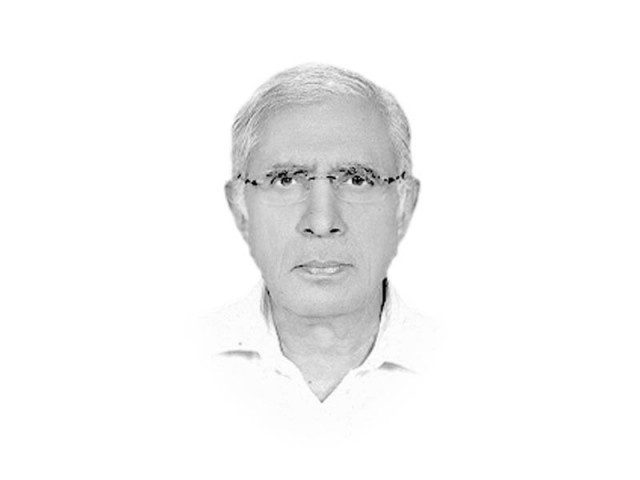Rethinking our economic strategies
We are managing our economy in a manner not only non-serious but also has the potential of undermining our security

The writer served as Executive Editor of The Express Tribune from 2009 to 2014
The reason why we have continued to fail in establishing a social welfare-oriented economy in the country despite proclaiming that this is what we are engaged in doing at the government level year after year is because Pakistan has continued to remain a security state since its inception. There is no way a security state would become a social welfare state just by wishing it to be so.
We do need to rethink our economic strategies and come up with an economic vision that would, while ensuring our security, enable the national economy to generate enough to provide affordable education, affordable access to healthcare, affordable housing and affordable transportation to our poor and indigent. Of course, many would derisively reject this approach as one that would only distribute poverty across the nation while rendering our security situation even more dire. But the fact is this is no light-weight approach. Within it is embedded what today is called social capitalism or social market economy.
But to be able to adopt this approach, we would first need to get out of the stranglehold of the Washington Consensus and at the same time give up the policy of making our economic and foreign policies subservient to our security policy. This strategy has succeeded only in isolating us completely in the region and if we continue on this path, the possibility of being declared a pariah state by the international community cannot be ruled out.
Currently, we are managing our economy in a manner that is not only non-serious but also has the potential of undermining our security rather seriously. What we do today amounts to just trying to find out what exactly our multilateral and bilateral donors would like us to do by way of managing the national economy and follow the instructions to the letter. And the easiest part of this is the exercise of putting together the annual budgets. Most of the time it is done through back calculations. A notional but ambitious figure is earmarked as the proposed target of Gross Domestic Product (GDP) for the next financial year. This is followed by estimates of equally notional contributions as per their respective sizes from large and small manufacturing sectors, agriculture, constructions, services and so on. In fact, the whole balance sheet, more often than not, is based on fanciful estimates all around.
Unlike in other democratic countries where shadow cabinets keep a close watch on the economy and oftentimes announce shadow budgets, we in Pakistan do not have such a tradition. What most of our opposition parties do is to keep talking about the rising debt and declining revenues without proposing alternative ways of stopping the rot. Neither do we have the tradition of debating various aspects of the budget in specialised parliamentary committees before it is brought to the House for voting. In fact, this year’s budget is said to have been kept secret even from the relevant parliamentary committee. At best, a hasty debate on the proposals is conducted in the National Assembly for no more than two weeks which is what is happening currently and then it is passed post haste as if both the government and the opposition members have other more ‘important’ business to attend to outside the House.
The only matter that brings the best or the worst out of these members during the debate is the head under which generous allocations are made for their own use, ostensibly for development purposes in their respective constituencies. These allocations, which are in fact bribes, keep these members across the aisle from asking searching questions about the budgetary proposals, especially the issues of income and expenditures. This practice of bribing the members of parliament was introduced by General Ziaul Haq to keep members of the 1985 parliament from questioning his authority to take all kinds of strategic decisions, including financial ones, on his own without consulting parliament or the cabinet.
Published in The Express Tribune, June 11th, 2016.
Like Opinion & Editorial on Facebook, follow @ETOpEd on Twitter to receive all updates on all our daily pieces.
















COMMENTS
Comments are moderated and generally will be posted if they are on-topic and not abusive.
For more information, please see our Comments FAQ